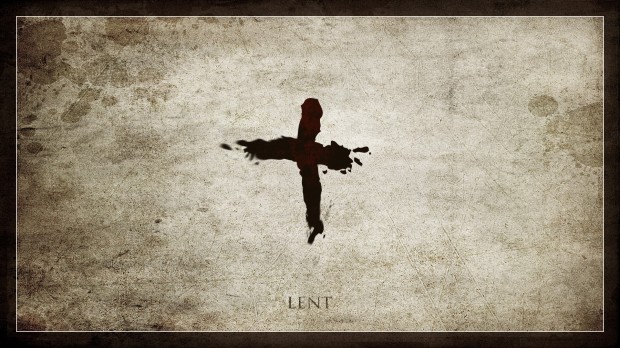“Dont give up on Lent”
by Fr Pat ODonoghue
(inspired by a taste of Chocolat!)
For as long as I can remember people have asked at this time of year ‘what are you giving up for Lent?’ The responses varied – sweets, biscuits, sugar, cigarettes or drink. In recent years the organisation ASH has used the traditional Ash Wednesday to kick off their ‘give up smoking’ campaign. Trócaire’s Lenten Appeal is now synonymous with the outreach of the Irish Catholic Church to those in developing countries. There is a general awareness of Ash Wednesday as the beginning of Lent and in our churches we will be busy distributing ashes to all who come. But I often wonder how deep our conviction is about Lent and how easy it is to be swamped by the pressures of our times to do nothing for the season – to give up on Lent.
I write as a struggling ‘chocoholic’ looking forward to the starting gun that is Ash Wednesday while allowing myself the final liberties of the condemned man. My recent fall into the allure of chocolate was sparked off by the film ‘Chocolat’. I was using it to illustrate the meaning of Lent based on an article by Canadian priest, Keith Kennific, entitled: “Chocolat” in Lent: A Discussion (Worship 2001, Spring). He extracts three important Lenten themes from the film: Community, Fasting and Conversion.
Community
The film starring Juliette Binoche, Judy Dench and Johnny Depp tells the story of a mother and her daughter who come to a French village in Lent 1959 to set up a chocolaterie (a kind of a chocolate parlour). She is not welcomed by the local community especially the repressed Mayor, Compte de Reynaud, who exercises an unhealthy control over the people and whose had assumed the role of keeper of the town morals. He also edits the homily scripts of the young priest, played by our own Hugh O’Connor. To cut a long story short this woman and her chocolate change people’s lives and attitudes. It is a study in conversion and how people can change when they are challenged to do so or allowed the freedom to be different. It demonstrates how a community can inhibit or enhance change. Eventually the hardened Compte melts like one of the delicious chocolates, the young curate begins to speak for himself and Easter Sunday is truly a day of celebration. It is easy to laugh at the Compte for his narrow mindedness but Kennific reminds us that to do so is to miss an essential Lenten challenge: “He is a mirror in which we have the opportunity to catch a healing glimpse of our own inconsistency and obtuseness.”
Fasting
In the film the Compte is assiduous in his fasting but sadly his sense of charity is not in keeping with his faithfulness to the letter of the law of the Church. We have lost the notion of fasting to a great extent since the obligatory element was removed in the sixties by the Catholic Church. This change is exacerbated by the availability of every kind of food throughout the year regardless of season. It may be February but that does not mean that we can’t have fresh raspberries in our roulade or orchids to decorate our tables. I write as one who does not see the past as the ‘good old days’ but would welcome the general support that existed for fasting at one time. At the Pro-Cathedral some years ago meat free recipes for Lent were made available to make it easier to connect with past traditions around Lent. These were very well received and point to a hunger for creative responses to traditional customs. This year (in conjunction with Veritas) we have a series of Monday lunchtime talks at 1.10 p.m. after the 12.45 p.m. Mass. Various speakers will cover a range of topics and afterwards soup and a roll will be available to keep in tune with the spirit of Lent. Fasting for charity is another example of this innovative approach to an old tradition.
Conversion
This brings me to the third element of Lent highlighted in the film – Conversion. The central characters of the film made significant changes in their lives as they experienced conversion in their own way.
Lent is about making changes that extend beyond the season. It teaches us what we can do without and also what we can do to help others by our charity and by changing our lifestyle. Jesus never separated fasting from charitable activity and prayer. Once we get beyond the initial cravings in the first few days of any project we begin to see the benefits. The forty days of Lent offer a timeframe for change. Christians have embraced this opportunity since at least the fourth century A.D. So let us not give up on Lent but use the wisdom of centuries to honestly look at ourselves and be open to change what is not wholesome about our lives.

